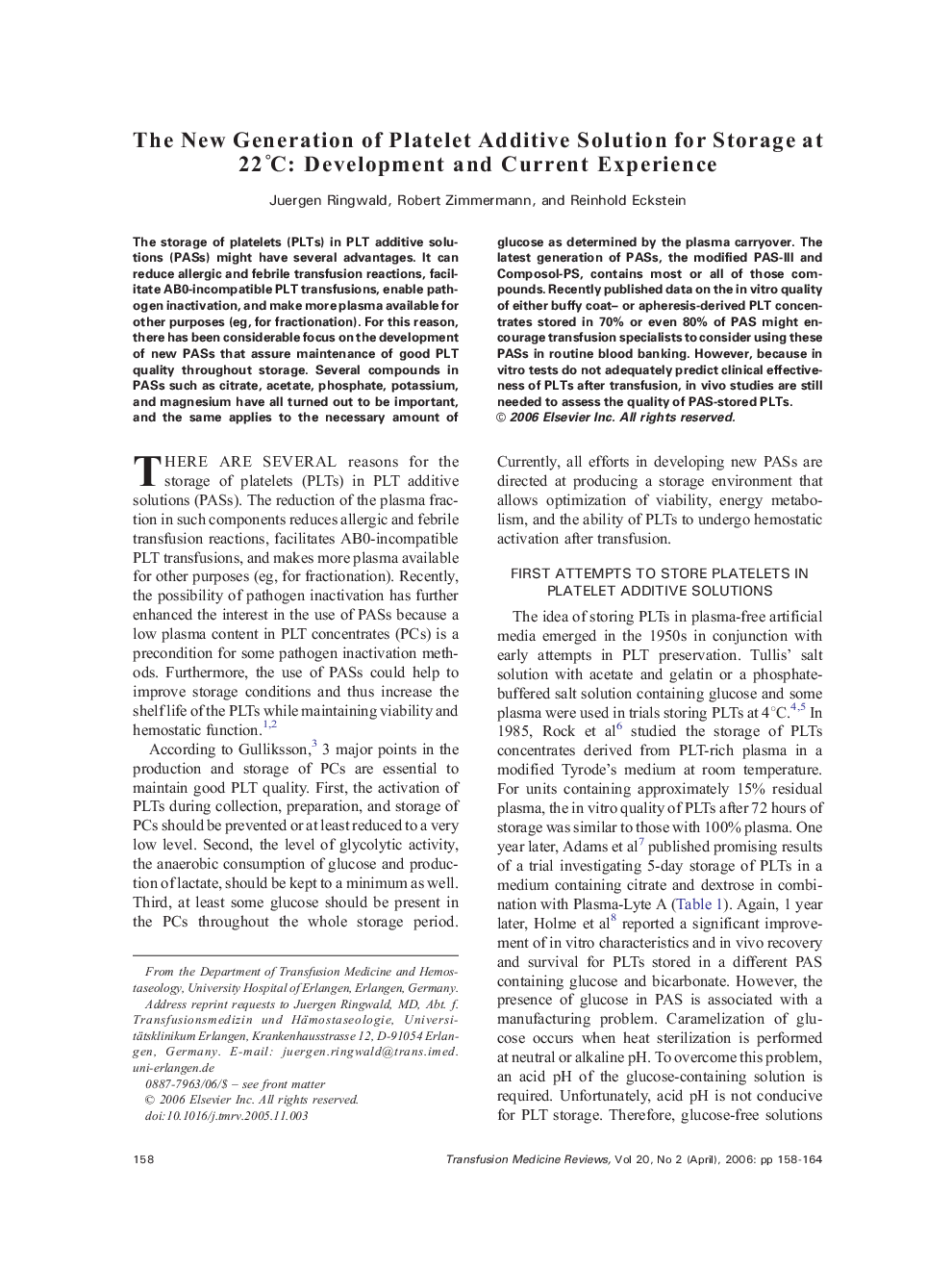| Article ID | Journal | Published Year | Pages | File Type |
|---|---|---|---|---|
| 3337011 | Transfusion Medicine Reviews | 2006 | 7 Pages |
The storage of platelets (PLTs) in PLT additive solutions (PASs) might have several advantages. It can reduce allergic and febrile transfusion reactions, facilitate AB0-incompatible PLT transfusions, enable pathogen inactivation, and make more plasma available for other purposes (eg, for fractionation). For this reason, there has been considerable focus on the development of new PASs that assure maintenance of good PLT quality throughout storage. Several compounds in PASs such as citrate, acetate, phosphate, potassium, and magnesium have all turned out to be important, and the same applies to the necessary amount of glucose as determined by the plasma carryover. The latest generation of PASs, the modified PAS-III and Composol-PS, contains most or all of those compounds. Recently published data on the in vitro quality of either buffy coat– or apheresis-derived PLT concentrates stored in 70% or even 80% of PAS might encourage transfusion specialists to consider using these PASs in routine blood banking. However, because in vitro tests do not adequately predict clinical effectiveness of PLTs after transfusion, in vivo studies are still needed to assess the quality of PAS-stored PLTs.
